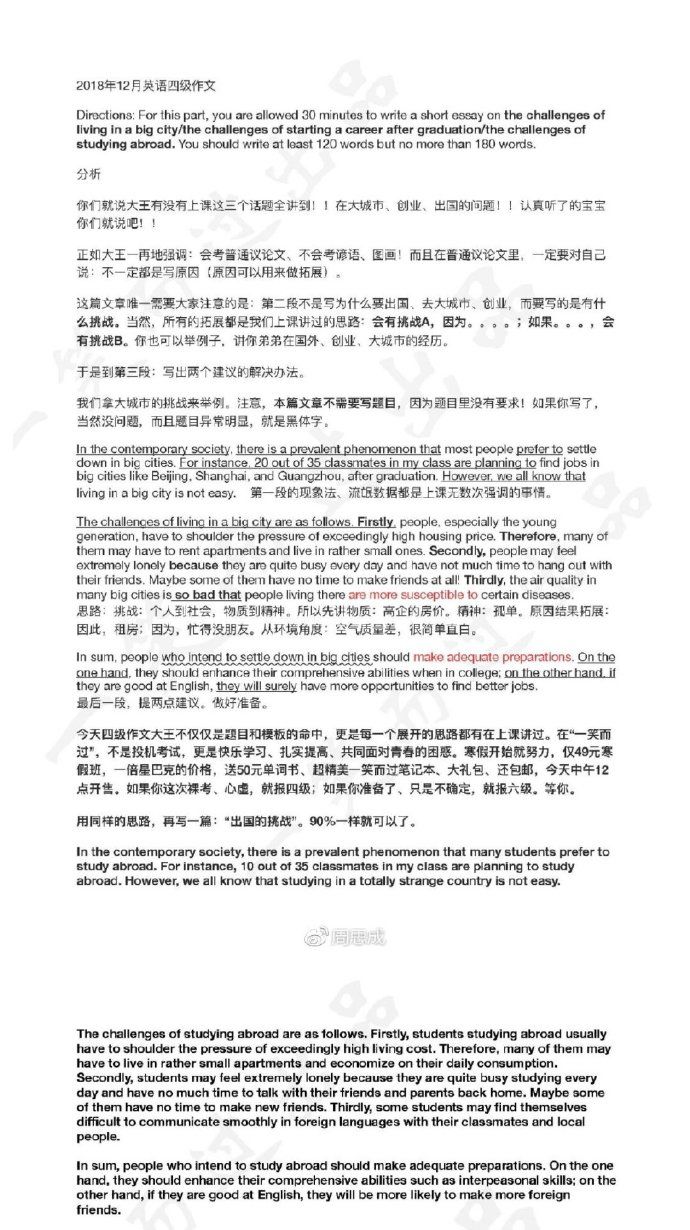2003年9月全国公共英语考试三级笔试真题b
|
SECTION Ⅲ Reading Comprehension(40 minutes) Directions: Text 1 “Oh, well,” I said, “put it like that and I'll marry your daughter tomorrow.” Actually, I don't know what we were waiting for, except that for a guy it's never the right time to get married. I' m also suspicious of any two people who don' t struggle with that decision. Part of my problem was that I was still lusting in my heart after other ladies. But somehow I knew that I wasn't going to find another woman remotely as great as my soon-to-be wife. It's a good thing my mother-in-law finally spoke up. I finally gathered my courage one day when we were having a picnic, and popped the question. I also gave my wife a big tourist pamphlet about Switzerland. I wasn't taking any chances. She said no. “Maybe I should have suggested Paris?” For a minute it seemed as if my change in travel plans would rate a solid “maybe”. But she said no again.When we woke up the next morning, she told me that she'd slept on my proposal. “I guess I was a little rude to you last night,” she explained. Meanwhile, I' m figuring I' m off the hook for this marriage thing for at least another eight years. I could afford to be generous. “I asked, you said no. It's okay,” I said. I might have looked a little too relieved because later that day she gave me a little box. Inside was a gold watch. On the back was inscribed. “Yes. I've reconsidered.” I liked the watch, so I did the right thing. 46. The reason why the man had waited so long was that he_________. 47. The man proposed to the woman because _________. 48. By saying “I could afford to be generous.” (third paragraph from the bottom) the man implied that he__________. 49. The last sentence “I did the right thing” implied he_________. 50. The best title for this text would be___________. Text 2 What's that? This story ? Oh, just a little look at small talk. You know, those seemingly meaningless conversations you have dozens of times a day, Maybe you' re waiting for the elevator. Or in a line at the bank. It all seems pretty trivial. Idle chatter about traffic doesn' t do much more than fill the air with empty words that are quickly forgotten. But you should know that small talk actually has a big place in our lives. Pat Oliver, assistant professor on arts, says that, “Left unchecked, small talk can be an invasion. It's so powerful. It does something to you.” “Every morning after spending an hour and a half on the freeway I start the day with small talk with my secretary,” Oliver says, “If I don't make small connection with another person, I can' t work.” What causes it? As a rule, you' re either trying to force something into your life, or you' re using conversation as an invisible force field to keep them out. You can be wanting to connect with another person, and small talk is your introduction to more meaningful conversation. The way people use small talk is usually determined by where they happen to be at the time. Take the elevator, for instance. Now there's prime territory. Nobody knows anyone and there's no reason to start a conversation, but invariably, someone does. Making conversation in such peaceful social settings, according to Oliver, “can confirm your territory. It's a way of feeling liked and accepted.” The topics of small talk don't matter. In fact, you don't want anything more taxing than the weather or the traffic. It's non-threatening talk in a threatening situation. However, the rules change quickly when you're with lots of people doing lots of talking. Let's say you're at a party. Now it' s time to use small talk as a way of making others feel more comfortable around you, so you don' t look silly standing by the food table alone all night. 51. “Small talk”, as interpreted by the author,________. 52. According to the author, small talk is often used ____________. 53. According to the author, topics of small talk may include comments on________. 54. Why is small talk described as “non-threatening talk in a threatening situation”? 55. According to the author, at a big party, small talk is used with the purpose of_______. |








